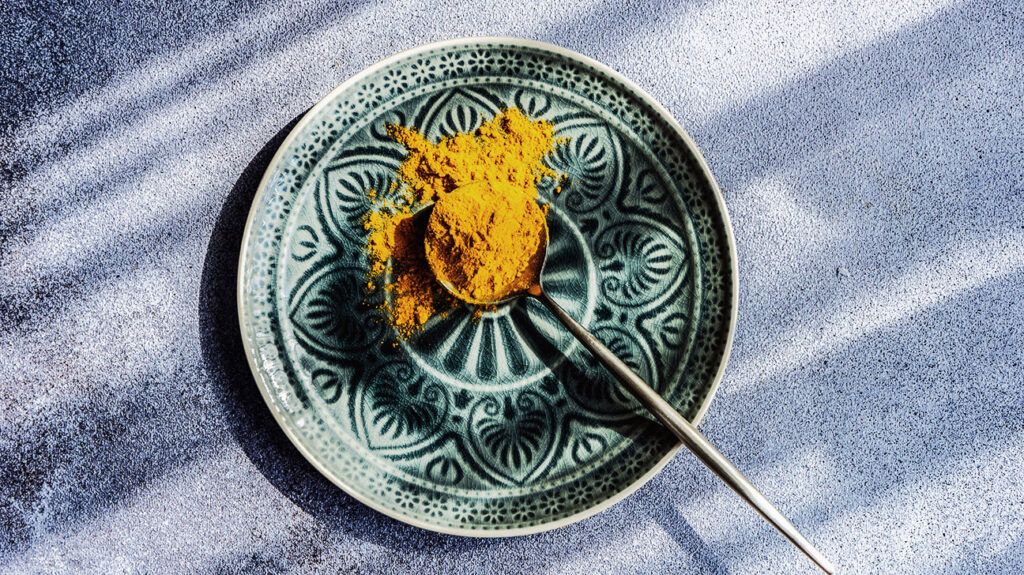Turmeric is a popular spice related to ginger that many people use for medicinal purposes. It has anti-inflammatory effects, among other properties, that may be helpful for treating hidradenitis suppurativa (HS).
Although experts do not know exactly what causes this condition, bacterial infections and inflammation can occur as part of HS.
There have not been any studies that focus specifically on turmeric as a treatment for HS.
It is possible that anti-inflammatory, antibacterial, and antimicrobial properties in turmeric may help reduce HS symptoms, although there is not enough evidence to prove this.
This article discusses how turmeric can be a treatment for HS, how it may help with the condition, and other HS treatments.

Turmeric is a natural plant root and has also traditionally served as a medicinal treatment. It is available as a spice commonly used in South Asian cooking.
Anecdotal evidence suggests that turmeric can be helpful for treating HS, and one study suggests that
How might it work?
Turmeric contains an active ingredient called curcumin. This ingredient is responsible for turmeric’s anti-inflammatory and antioxidative effects.
Curcumin works at a cellular level to target free radicals. These are unstable cells that cause damage to the body. Targeting them can help inhibit the production of chemicals that cause inflammation within the body.
Experts believe that curcumin also has antioxidative effects that can help reduce oxidative stress. Oxidative stress
According to a 2022 review, several studies indicate that curcumin can regulate certain immune cells that contribute to HS. These include T-lymphocytes, macrophages, and dendritic cells.
Some people with HS find that taking turmeric as an oral supplement or as a topical treatment can help reduce inflammation and prevent infection. Others may not notice a benefit.
Research concerning the medicinal value of curcumin is ongoing, but
Learn more about the benefits of turmeric.
People can take it in the following ways:
Supplements
Turmeric root powder contains a fairly small amount of curcumin — around
Certain supplements can contain up to around 95% curcumin.
Anecdotally, some people choose to ingest turmeric root or powder mixed with water 1–3 times per day. People may also consume it in their food.
Although experts say curcumin-based supplements are
Learn more about turmeric supplements.
Topical treatment
To use turmeric as a topical treatment, anecdotal reports claim that a person can mix one tablespoon of ground turmeric powder with half a tablespoon of a carrier oil — such as coconut or jojoba oil — to form a paste.
They can then apply this paste to the affected area of the skin for a while before rinsing off.
If there is any irritation or side effects, it is important to remove the paste and clean the area with cool water.
Always consult a healthcare professional before applying turmeric directly to the skin. They can also provide details about the best way to prepare and use it.
Turmeric and magnesium sulfate baths are also a
Learn more about using turmeric on the skin.
Besides turmeric, other medical and complementary treatments for HS exist.
Medical treatments for HS include:
- antibiotics
- antiseptics
- retinoids
- contraceptives
- immunosuppressants
- steroids
- surgery
Complementary and alternative treatments include:
- warm compress
- honey
- tea tree oil
- aloe vera
- zinc
- neem oil
- apple cider vinegar
- certain dietary changes
Learn more about surgical treatments for HS.
There is not enough evidence to fully understand how turmeric may benefit those with HS.
However, many people see a benefit from using turmeric to treat their condition. Medical and other complementary treatments are available to treat HS effectively.
Curcumin is the active ingredient in turmeric. The anti-inflammatory properties of curcumin may help treat HS, whether individuals choose curcumin or turmeric supplements, or use it topically.
A person should always discuss any treatments they are considering with their doctor and follow advice from their healthcare team.
